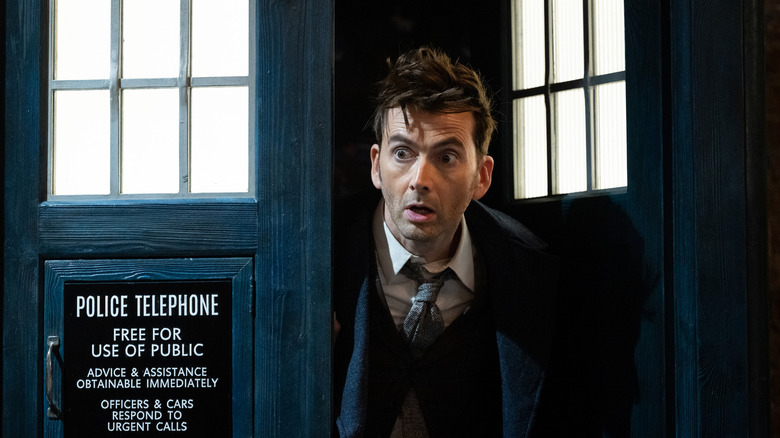Doctor Who Fans Aren't Happy About The BBC's New Plans For AI Content: Here's Why
The universe of "Doctor Who" is one in which a sentient time machine disguised as a police call box carries a nearly immortal alien through spacetime. But although the beloved BBC series has often dealt with fictional AI, the broadcaster now finds itself in hot water after promising to use real-life AI to promote the Ncuti Gatwa-starring show.
On March 7, the BBC Media Centre published an article explaining that, in collaboration with human oversight, AI-generated marketing copy would be used to promote "Doctor Who." "There's a rich variety of content in the Whoniverse collection on iPlayer to test and learn with, and Doctor Who thematically lends itself to AI which is a bonus," the article read. Perhaps the venerated steward of the "Doctor Who" franchise forgot to take the cultural temperature of the show's fanbase, which quickly mobilized in revolt against the proposed use of large language models (LLMs).
Some fans were quick to point out that when AI has appeared in "Doctor Who," it is almost always as a major threat to the Doctor and his friends. As @lesbiaudrey wrote on X (formerly Twitter), "'Doctor Who' lends itself to AI' is an all timer bulls*** quote for me. You can tell they think that because it's like, sci-fi, y'know. Ignore the countless evil AIs that the Doctor has fought in the show."
Over the six decades "Doctor Who" has been a staple of British television, quite a few of its most fearsome villains have relied on artificial intelligence. From the Cyberium that controls the terrifying Cybermen to WOTAN, a human-built AI that tried to conquer the world, technology parading under the banner of AI has rarely been allied with the show's Gallifreyan protagonist.
The BBC quietly deleted its AI Doctor Who announcement after fan backlash
After a fierce backlash from fans in response to an announcement that AI-generated marketing copy would be used to promote upcoming "Doctor Who" media, the BBC quietly pulled the article touting those efforts from publication, leaving behind only a version of the page cached by Google as evidence of its existence — along with dozens of media reports that had quoted it.
The proposed program, according to the BBC, would have sent human-written headlines to push notifications, email, and in-site elements of the BBC website, but the copy contained in the bodies of these promotions would be generated by an LLM before being reviewed by humans, then test sampled out to users to determine which generated text was most effective. In addition, any AI-generated content was intended to be labeled as such. Nonetheless, the specter of any AI, no matter how supervised by humans, drew ire from the show's large and passionate fanbase.
Fans took particular umbrage at the BBC's claim that "'Doctor Who' lends itself thematically to AI." Jesse Earl, a popular YouTube creator whose content focuses on science-fiction analysis, wrote on X, "The only way Doctor Who "thematically lends itself to AI" is if you're aware that AI is the Cybermen –- a force trying to turn humans into simple mindless automatons single mindedly focused on turning others into mindless automatons..." Indeed, it seems that fans took these enemies to heart, and now they fear the dystopian possibilities of AI might mutate from science fiction to fact.
As of this writing, the BBC has not issued a follow-up statement regarding whether it still plans to use AI to promote "Doctor Who."

